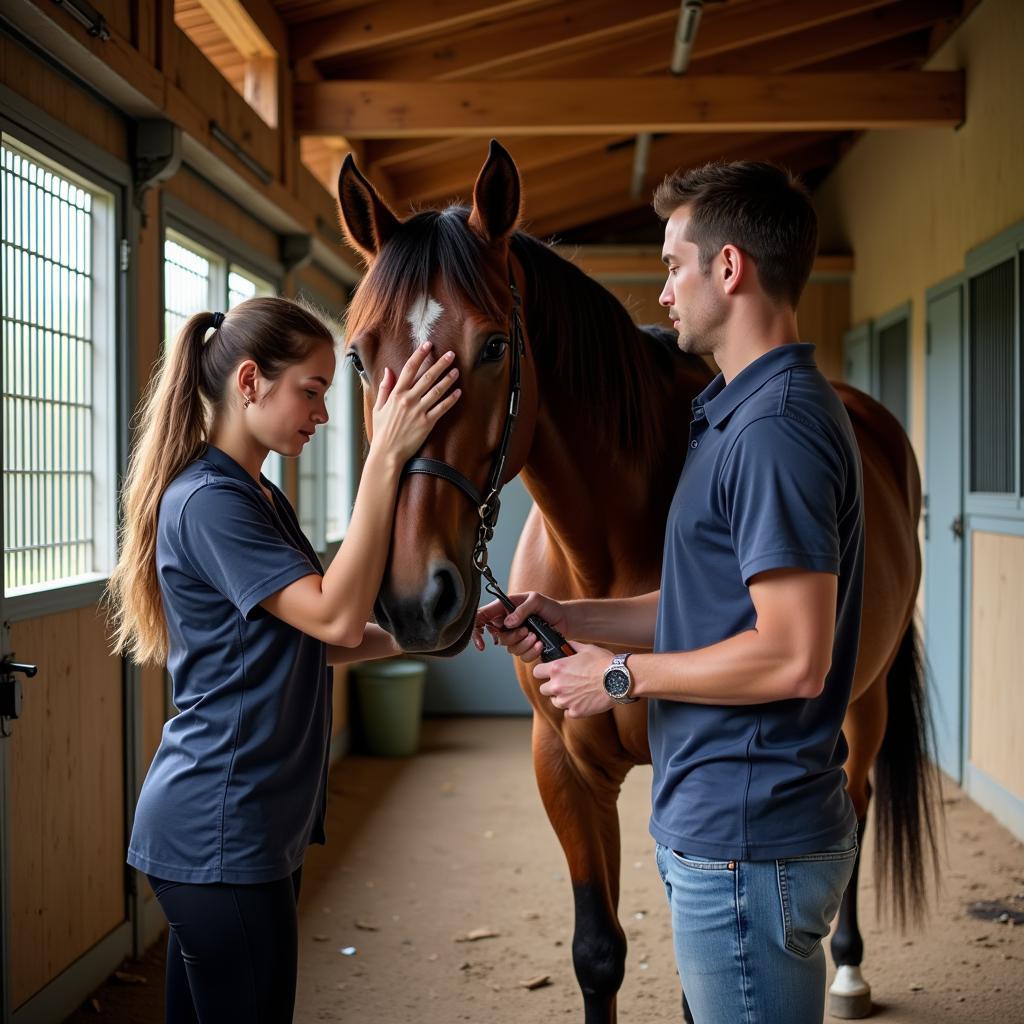The term “horse dildo” is often searched online, leading to a critical discussion about animal welfare and responsible pet ownership. It’s crucial to address this topic with sensitivity and accuracy to ensure the well-being of horses and other animals. This article will explore the implications of this search term, debunk myths, and emphasize the importance of ethical treatment.
The Reality Behind the Search for “Horse Dildo”
Why do people search for “horse dildo”? Understanding the motivation behind this search is the first step in addressing the issue. While some searches may be driven by genuine curiosity or misinformation, others may indicate a concerning interest in animal abuse. Regardless of the intent, it’s vital to provide accurate information and promote responsible animal care.
Animal Welfare and Ethical Considerations Regarding “Horse Dildo”
Animal welfare should always be the priority. The use of any object on an animal in a way that could cause physical or psychological harm is unacceptable and potentially illegal. It’s essential to remember that animals are sentient beings deserving of respect and humane treatment. Exploiting them for sexual gratification is a severe form of abuse.
Recognizing the Signs of Animal Abuse
Learning to recognize the signs of animal abuse is crucial. These signs can include physical injuries, changes in behavior, fear, and withdrawal. If you suspect animal abuse, reporting it to the appropriate authorities is essential.
The Importance of Education and Responsible Pet Ownership
Education plays a vital role in preventing animal abuse. By providing accurate information about animal care and welfare, we can empower individuals to make responsible choices. Responsible pet ownership involves understanding an animal’s physical and emotional needs and providing a safe and nurturing environment.
Resources for Horse Owners and Animal Lovers
Numerous resources are available for horse owners and animal lovers seeking information about responsible care and ethical treatment. Organizations like the ASPCA and the Humane Society offer valuable guidance and support.
 Responsible Horse Ownership Practices
Responsible Horse Ownership Practices
Addressing Misinformation Surrounding “Horse Dildo”
Misinformation about animal sexuality and the use of objects like “horse dildos” can contribute to harmful practices. It’s crucial to debunk these myths and provide factual information about animal anatomy and behavior. Openly discussing these topics, while remaining sensitive and respectful, can help prevent abuse and promote understanding.
Legal Implications of Animal Abuse Related to “Horse Dildo”
Animal abuse is a serious crime with legal consequences. Laws vary depending on location, but acts of cruelty towards animals, including sexual abuse, are punishable by fines, imprisonment, or both. Reporting suspected abuse is essential to protecting animals and holding perpetrators accountable.
Protecting Animals: How to Report Suspected Abuse
If you suspect animal abuse, contact your local animal control agency, humane society, or law enforcement. Providing as much detail as possible, including location, date, time, and description of the incident, can help authorities investigate and take appropriate action.
Conclusion: Promoting a Culture of Respect and Compassion for Animals
The term “horse dildo” raises important questions about animal welfare and responsible pet ownership. By addressing this topic with sensitivity and providing accurate information, we can promote a culture of respect and compassion for animals. Let’s work together to ensure that all animals are treated with the dignity and care they deserve. Remember, responsible pet ownership involves understanding and meeting the physical and emotional needs of your animals, ensuring their health, safety, and well-being.
FAQs about Animal Welfare and Abuse
- What constitutes animal abuse?
- How can I report suspected animal abuse?
- What are the signs of animal neglect?
- What are the legal consequences of animal abuse?
- What resources are available for victims of animal abuse?
- How can I educate others about animal welfare?
- What are some common misconceptions about animal abuse?
Need assistance? Contact us: Phone: 0772127271, Email: [email protected], or visit us at QGM2+WX2, Vị Trung, Vị Thuỷ, Hậu Giang, Việt Nam. We have a 24/7 customer service team.
Explore more related articles on our website about responsible horse ownership, recognizing and reporting animal abuse, and promoting animal welfare.